Finding Accredited Heroin Rehab Centers To Help You Get Clean

Making Informed Choices for Effective Recovery
Deciding to seek help for heroin addiction is a vital step towards recovery, and finding the right rehab center plays a crucial role in achieving sustained sobriety. With many facilities offering various treatments, understanding what accredited centers provide can help individuals and families make informed decisions.
Understanding Treatment Duration and Effectiveness
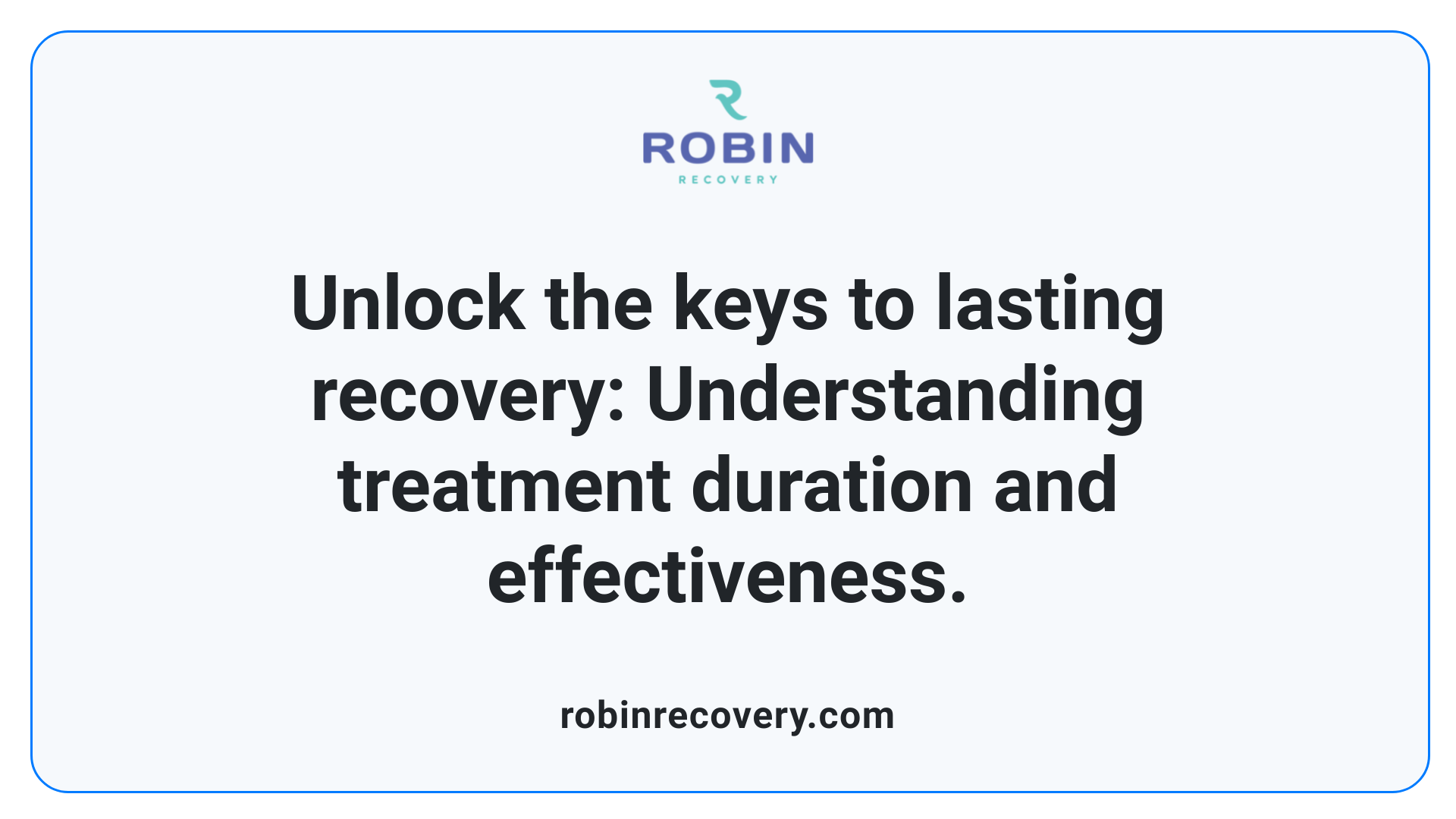
How long does treatment for heroin addiction typically last?
Treatment for heroin addiction typically lasts several weeks to months, highly influenced by the individual’s specific needs and progress. Many individuals begin their recovery journeys with residential treatment programs. These programs commonly last between 30 to 45 days. The initial stay focuses on detoxifying the body from heroin while providing essential medical support and therapy.
Following the residential phase, many transition into intensive outpatient programs, which usually last around 45 days or longer. This stage allows individuals to continue therapy while integrating back into their daily lives. It’s crucial to understand that recovery from heroin addiction is fundamentally a long-term process.
Ongoing support mechanisms like counseling, participation in support groups, and aftercare can persist for months, or even years, after the primary treatment phase. The experience varies greatly across individuals, especially depending on the severity of addiction and any accompanying mental health challenges.
Importance of extended treatment programs
Extended treatment programs play a vital role in achieving sustained recovery. Research shows that spending at least 90 days in treatment is linked to better recovery outcomes. These programs afford ample time for individuals to address not only their substance abuse but also any underlying psychological issues.
Rehabilitation follows a structured process: intake and assessment, detoxification, therapy, and aftercare. Each stage is essential, ensuring a well-rounded approach to recovery. Personalized treatment plans further enhance these programs, as they adjust to the unique challenges each individual faces.
Ultimately, comprehensive aftercare support is essential to maintaining sobriety and significantly reducing the risk of relapse after completion of the treatment.
Exploring Support Networks for Sustained Recovery
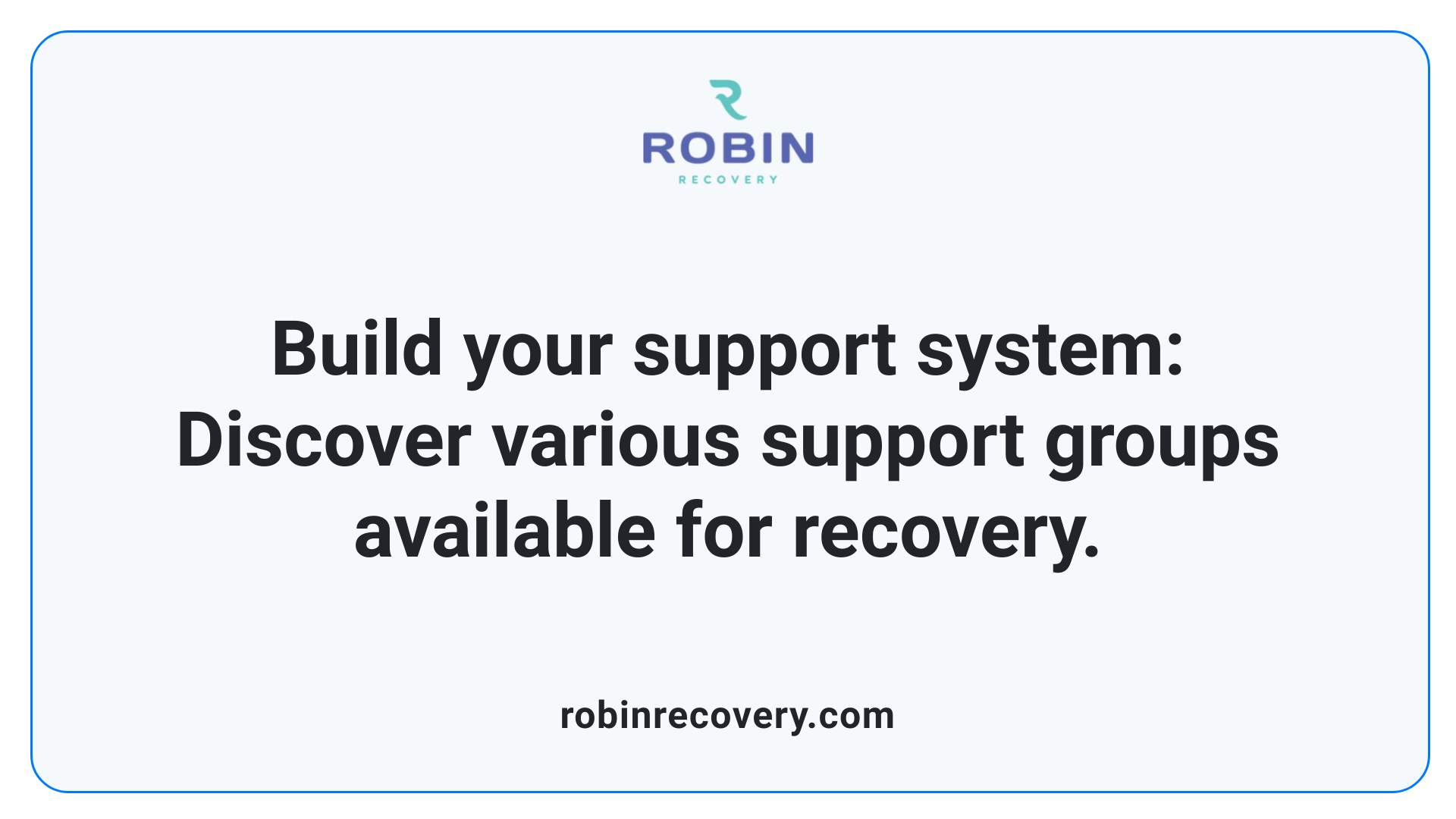
What types of support groups are available for individuals with drug addiction?
Support networks are vital for individuals facing drug addiction. Several options cater to different needs, ensuring a broad spectrum of support.
- Narcotics Anonymous (NA) - This program utilizes the 12-step model, providing a community for individuals to share experiences and support one another in recovery.
- Alcoholics Anonymous (AA) - Similar to NA, AA focuses on alcohol use disorder, offering a safe space for peer support through shared personal stories.
- Dual Recovery Anonymous (DRA) - This group serves individuals dealing with both substance abuse and mental health disorders. It focuses on the complexities of dual recovery in a supportive environment.
- SMART Recovery - This alternative approach emphasizes self-empowerment and incorporates scientific strategies for recovery, challenging traditional models.
- Secular Organizations for Sobriety (SOS) - This program provides a non-religious approach, supporting those who prefer a secular avenue to sobriety.
Importance of community in recovery
Community plays a crucial role in recovery from drug addiction. It fosters a sense of belonging and accountability. Not only do support groups provide emotional support, but they also offer practical advice and insights from those who have faced similar challenges.
Additionally, staying connected with recovery groups can help reduce feelings of isolation, which is often a barrier to successful recovery. Engaging with others allows individuals to learn coping strategies and gain motivation from each other's progress.
For immediate assistance, individuals can contact SAMHSA’s National Helpline at 1-800-662-HELP (4357) for free, confidential support and referrals to local treatment options.
Comprehensive Rehabilitation Strategies for Overcoming Addiction
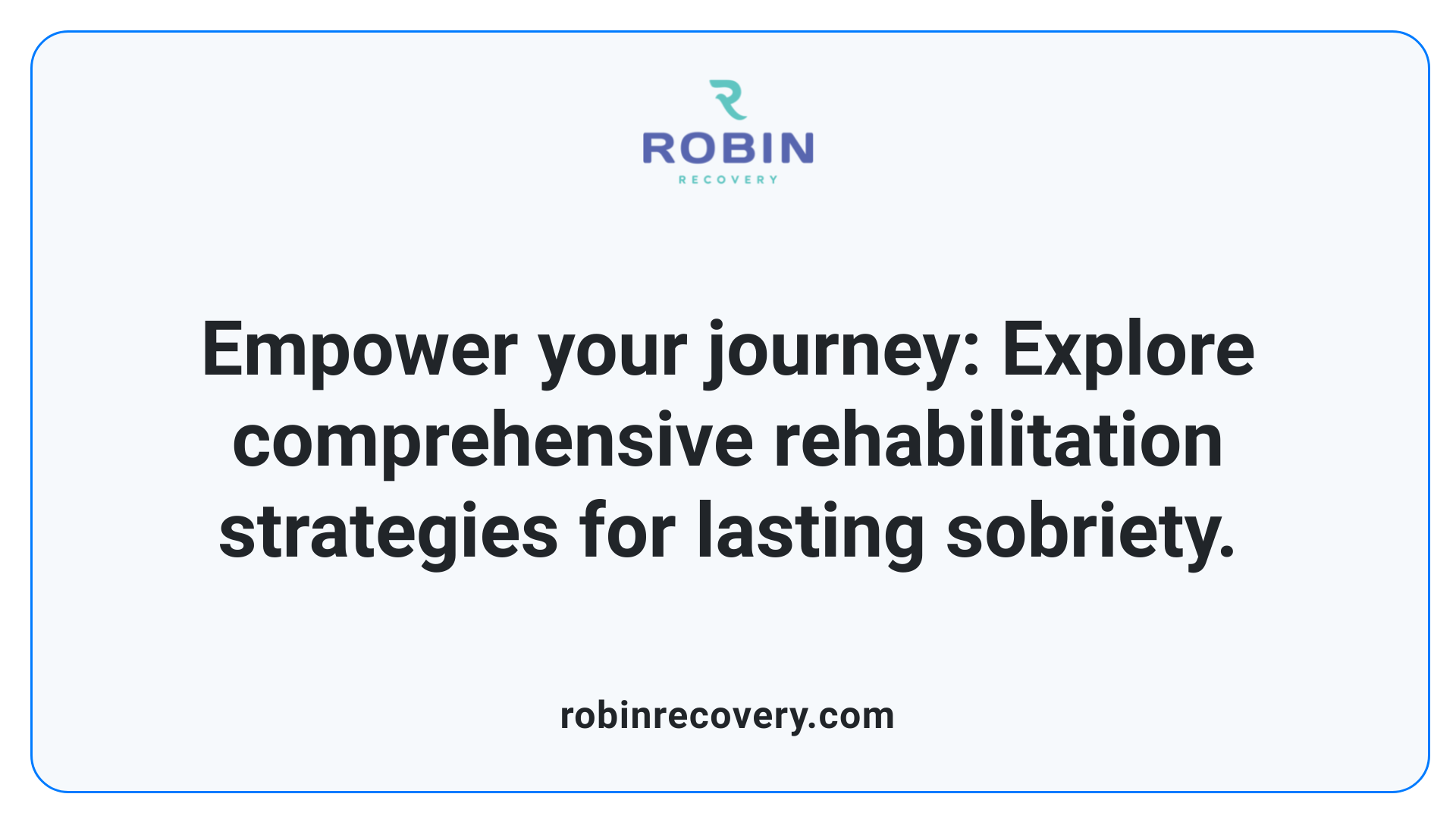
Components of rehabilitation programs
Rehabilitation programs designed to support individuals overcoming heroin addiction offer a structured pathway to recovery. Typically, these programs incorporate several crucial stages:
- Intake and Assessment: This initial phase involves evaluating the individual's specific needs, substance use history, and any co-occurring mental health disorders.
- Detoxification: Often lasting about 7 days, this medical phase helps manage withdrawal symptoms safely.
- Therapy: Post-detox, therapy plays a vital role. It includes cognitive-behavioral therapy, group counseling, and sometimes medication-assisted therapy. These therapeutic modalities aim to address both the addiction and underlying psychological issues.
- Aftercare: Support following treatment is essential. Aftercare includes ongoing group meetings, therapy, and support systems that help prevent relapse.
Role of therapy and holistic methods
Therapy is central to rehabilitation outcomes, with personalized treatment plans significantly enhancing recovery rates. Programs increasingly integrate holistic methods, such as yoga and mindfulness, which promote mental well-being and resilience.
Research indicates that rehabilitation is the most effective approach to treating addiction. A 2016 SAMHSA report showed that nearly 1.7 million people utilized publicly funded rehab centers, underscoring the importance of access to affordable care. Facilities like Turnbridge highlight the impact of effective rehabilitation, boasting over 95% of alumni remaining sober for at least a year after completing extended treatment.
Key Aspects of Comprehensive Rehabilitation Programs:
Stage Description Importance Intake & Assessment Evaluating individual needs and history Tailors the recovery process Detoxification Managing withdrawal symptoms through medical support Ensures safety during recovery Therapy Offering cognitive-behavioral and holistic therapies Addresses addiction and mental health issues Aftercare Continuing support post-treatment Reduces risk of relapse
This comprehensive approach ensures that individuals battling heroin addiction receive the essential medical, therapeutic, and holistic support necessary for long-term recovery.
Navigating Insurance and Financial Support for Rehab
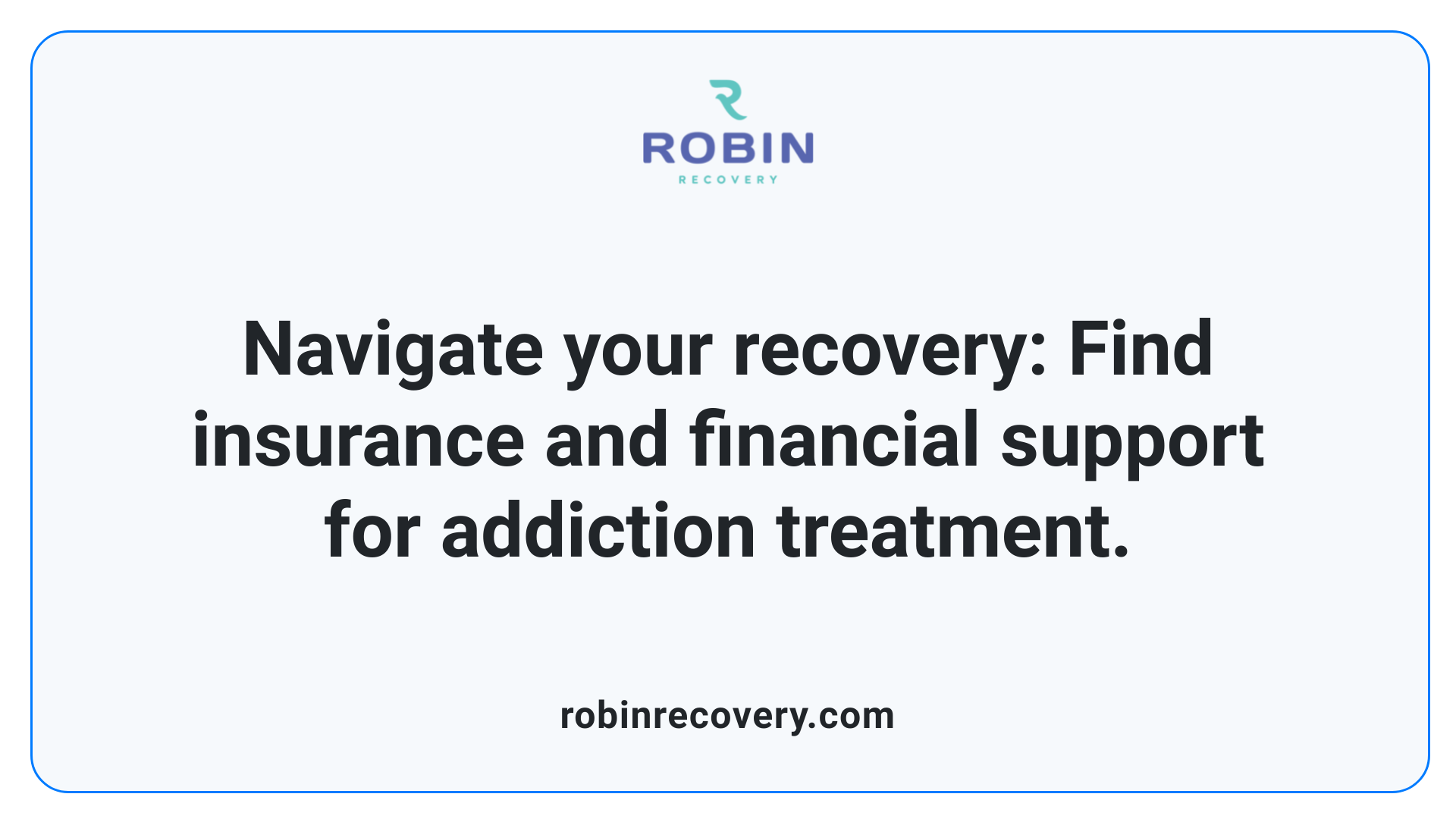
Role of Insurance and Public Assistance
Finding financial support for addiction treatment is crucial, especially as many individuals face barriers when seeking help. The SAMHSA National Helpline (1-800-662-HELP) provides free referrals to local treatment facilities and support groups, offering guidance without requiring health insurance. This is particularly beneficial for those underinsured or without insurance, as the service operates year-round and caters to a diverse audience in both English and Spanish.
Public assistance options are vital in overcoming the financial hurdles associated with rehab. Programs such as Medicare, Medicaid, and the Affordable Care Act can help cover the costs of addiction treatment, enabling access to services for millions.
Affordability of Rehab Services
The cost of substance abuse treatment can often deter individuals from seeking help. However, various state-funded rehab centers offer both inpatient and outpatient care, sometimes at little or no cost. These centers, while effective, may require patients to endure waiting lists, highlighting the demand for affordable treatment options.
Investing in addiction treatment can lead to significant long-term savings. Studies indicate that the costs of treatment are often outweighed by the savings in healthcare. Furthermore, personalized treatment plans and extended stays—typically lasting 30 to 90 days—can improve recovery outcomes, making rehab both a beneficial and economical choice for individuals and society.
Leveraging SAMHSA’s Helpline for Accessible Treatment Options
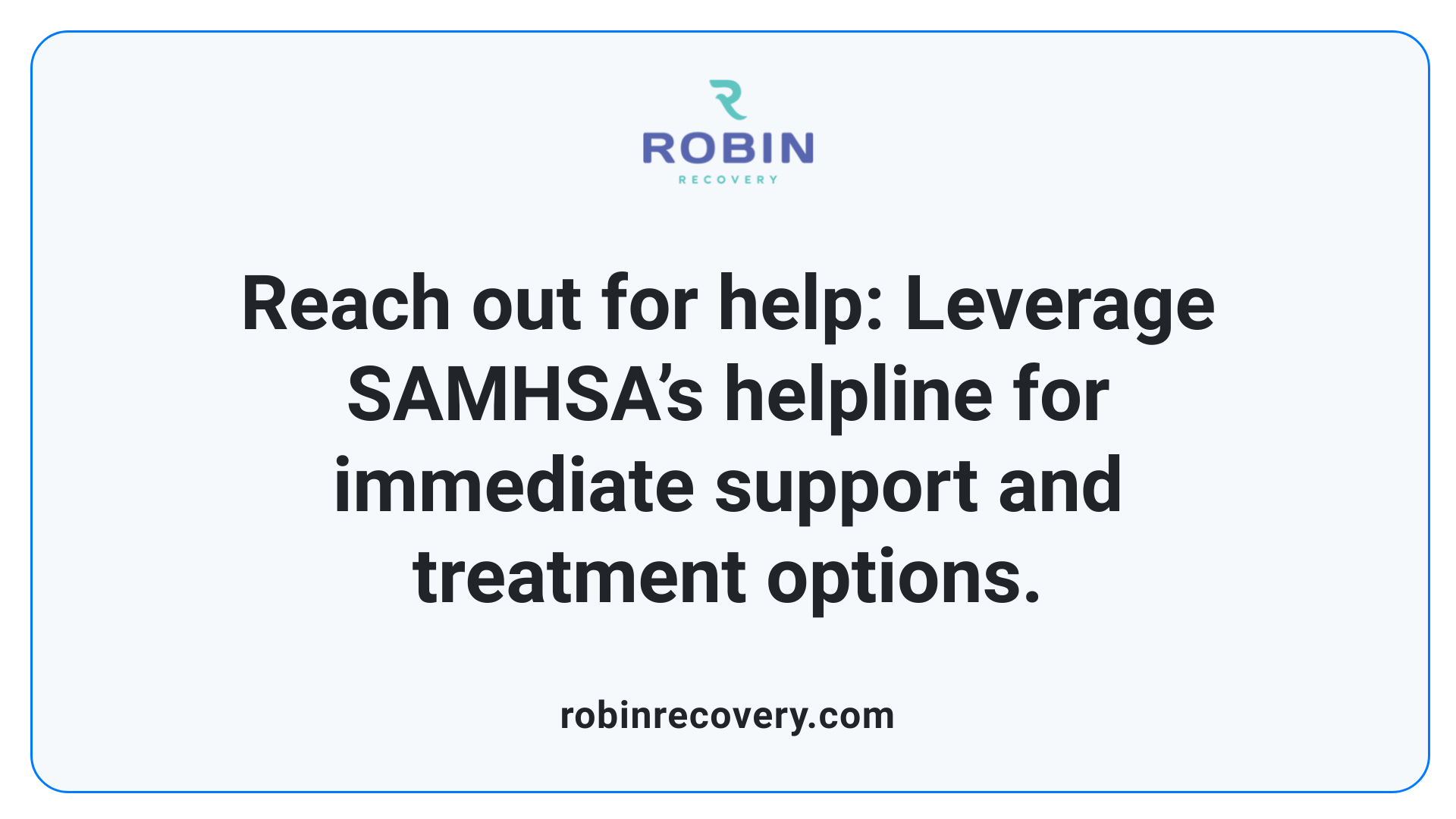
Using SAMHSA’s Helpline for Referrals
The Substance Abuse and Mental Health Services Administration (SAMHSA) offers a crucial resource for those grappling with substance use disorders through their National Helpline. This free and confidential service is available around the clock at 1-800-662-HELP (4357). Individuals can access treatment referrals and information about local facilities, enhancing their chances of finding suitable help.
With operations year-round and support available in both English and Spanish, the helpline caters to a broad audience needing assistance. Notably, individuals do not need health insurance to benefit from this service, making it particularly valuable for those who are uninsured or underinsured.
Benefits of 24/7 Confidential Assistance
The SAMHSA Helpline prioritizes confidentiality by not requesting personal information, though it may collect geographic details to connect callers with nearby resources. This assurance allows individuals to seek help without fear of stigmatization.
Moreover, rehabilitation typically spans 30 to 90 days, with medical detoxification lasting about a week to address withdrawal symptoms. After treatment, personalized aftercare is essential in maintaining recovery, ensuring that those in need have ongoing support.
Overall, SAMHSA’s National Helpline serves as a vital link to quality treatment and recovery resources across the United States.
Taking the Step Towards Recovery
Finding the right accredited rehab center for heroin addiction can be life-changing. By understanding treatment durations, exploring available support groups, and leveraging vital resources such as SAMHSA’s Helpline, individuals can embark on a successful recovery journey. Making informed decisions with comprehensive support enhances the chances of sustained sobriety and a healthier future.
